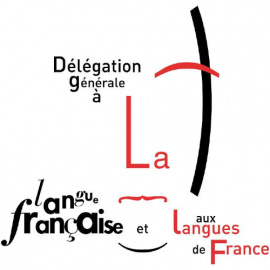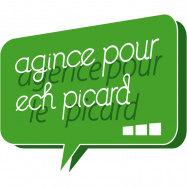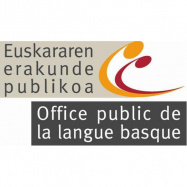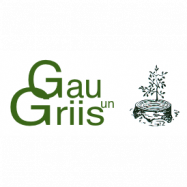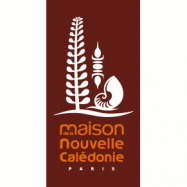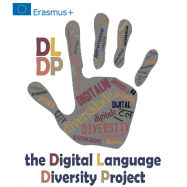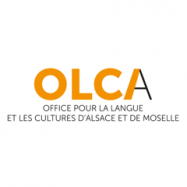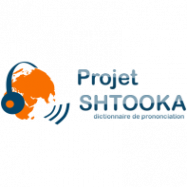LinguaLibre
Difference between revisions of "About/it"
WikiLucas00 (talk | contribs) (Created page with "Lingua Libre è stata creata perché ci sono diversi deficit su Wikimedia e sul web in generale:") |
WikiLucas00 (talk | contribs) (Created page with "* Deficit di diversità: Mentre il web è in teoria aperto a tutti, il suo contenuto non rappresenta tutte le lingue ugualmente. Più del 50% dei siti web è in inglese; solo...") |
||
| Line 64: | Line 64: | ||
Lingua Libre è stata creata perché ci sono diversi deficit su Wikimedia e sul web in generale: | Lingua Libre è stata creata perché ci sono diversi deficit su Wikimedia e sul web in generale: | ||
| − | * | + | * Deficit di diversità: Mentre il web è in teoria aperto a tutti, il suo contenuto non rappresenta tutte le lingue ugualmente. Più del 50% dei siti web è in inglese; solo 301 delle 7.000 lingue del mondo hanno un'enciclopedia libera <sup>[https://w3techs.com/technologies/overview/content_language/all <nowiki>[1]</nowiki>]</sup>, con un contenuto inferiore in qualità e quantità rispetto alle lingue con risorse elevate come l'inglese <sup>[https://w3techs.com/technologies/overview/content_language/all <nowiki>[1]</nowiki>], [https://athenaeum.libs.uga.edu/handle/10724/37877 <nowiki>[2]</nowiki>]</sup>. Inoltre, questi siti web ospitano contenuti che riflettono e rispondono alle norme e alle necessità occidentali attraverso il medium scritto, il quale spiega e contribuisce a perpetuare il loro deficit di diversità. |
* Lack of orality: Although languages are essentially spoken (only 4,000 of the world's 7,000 languages have a writing system)<sup>[https://www.ethnologue.com/enterprise-faq/how-many-languages-world-are-unwritten-0 <nowiki>[4]</nowiki>]</sup>, knowledge sharing and communication via new information and communication technologies (NICTs) is mainly done in writing, particularly on the web, despite the rich multimedia format it allows. This mediation of the oral through the written word raises many barriers to contribution, such as the use of Unicode characters, the culture of the written word, the orthographic standardisation of the language or the literacy rate of the community. | * Lack of orality: Although languages are essentially spoken (only 4,000 of the world's 7,000 languages have a writing system)<sup>[https://www.ethnologue.com/enterprise-faq/how-many-languages-world-are-unwritten-0 <nowiki>[4]</nowiki>]</sup>, knowledge sharing and communication via new information and communication technologies (NICTs) is mainly done in writing, particularly on the web, despite the rich multimedia format it allows. This mediation of the oral through the written word raises many barriers to contribution, such as the use of Unicode characters, the culture of the written word, the orthographic standardisation of the language or the literacy rate of the community. | ||
Revision as of 15:32, 25 November 2020
Lingua Libre è un progetto di Wikimédia France che intende raccogliere un corpus audiovisivo multilingue collaborativo sotto licenza libera per:
- arricchire la nostra conoscenza delle lingue e nelle lingue nei media audiovisivi sul web, sui progetti di wikimedia e al di là di essi,
- sostenere lo sviluppo di comunità linguistiche in linea - in particolare quelle con poche risorse, lingue minoritarie, regionali, orali o dei segni - per facilitare il loro accesso alle informazioni su Internet e assicurare la vitalità delle loro lingue
Come partecipare?
Su Lingua Libre potete esplorare e riutilizzare le registrazioni esistenti, contribuire al corpus registrando altre parole o migliorare il sito web stesso, in collaborazione con la comunità.
Il Record Wizard permette la registrazione, la categorizzazione e la pubblicazione su Wikimedia Commons di brevi registrazioni audio o video (1 parola, 1 locuzione) da un computer o da uno smartphone. È necessario fare il login o creare un account utente. Il manuale d'uso è disponibile sulle pagine di aiuto.
Per modificare le pagine del sito web basta fare il login e cliccare su modificare. Per aggiungere altre pagine, ci sono due fasi: inserite il titolo della pagina che volete creare sul vostro browser col prefisso "LinguaLibre:". Apparirà un messaggio che propone di creare la pagina. Per tutte le modifiche sostanziali, per favore contattate la comunità in anticipo.
Perché partecipare?
Lingua Libre è stata creata perché ci sono diversi deficit su Wikimedia e sul web in generale:
- Deficit di diversità: Mentre il web è in teoria aperto a tutti, il suo contenuto non rappresenta tutte le lingue ugualmente. Più del 50% dei siti web è in inglese; solo 301 delle 7.000 lingue del mondo hanno un'enciclopedia libera [1], con un contenuto inferiore in qualità e quantità rispetto alle lingue con risorse elevate come l'inglese [1], [2]. Inoltre, questi siti web ospitano contenuti che riflettono e rispondono alle norme e alle necessità occidentali attraverso il medium scritto, il quale spiega e contribuisce a perpetuare il loro deficit di diversità.
- Lack of orality: Although languages are essentially spoken (only 4,000 of the world's 7,000 languages have a writing system)[4], knowledge sharing and communication via new information and communication technologies (NICTs) is mainly done in writing, particularly on the web, despite the rich multimedia format it allows. This mediation of the oral through the written word raises many barriers to contribution, such as the use of Unicode characters, the culture of the written word, the orthographic standardisation of the language or the literacy rate of the community.
- These lacks of diversity and orality limit the ability of Internet users to communicate and contribute online to various web platforms where they cannot find content and communities sharing their language. Among the regional minority languages that are oral or signed, they threaten in particular the poorly endowed ones, many of which are currently in danger of extinction and for whom inclusion on the web is a major challenge and opportunity.
- Indeed, of the 7000 languages in existence today, it is estimated that only 2500 will survive to the next century and only 250 (less than 5%!) will make their digital ascent — i.e. be used regularly for communication purposes in the digital space by native speakers who are comfortable on the web — a factor which is yet essential for their vitality[5]. Current initiatives by linguists and activists to document and share data, resources and content online in the languages to be preserved do not directly contribute to the development of a digitally-ascendant linguistic community of Internet users, and thus remain limited in their impact.
- Lingua Libre aims to make up for this lack of support by placing itself at the service of linguistic communities wishing to insert and promote their language into the digital space by exploring alternative means of communication to the written word, in the hope that this will free up online communication in a growing number of languages. This objective favours by its very nature regional minority languages that are poorly endowed in terms of oral or signed language, but also benefits more endowed languages that wish to highlight their oral and visual aspects. To fulfil its mission, Lingua Libre offers an online solution for mass recording, leading to the publication of a collaborative multilingual audiovisual corpus under free licence, whose vocation is information through consultation, and revitalisation by triggering the contribution of new language communities on Lingua Libre and then outside.


